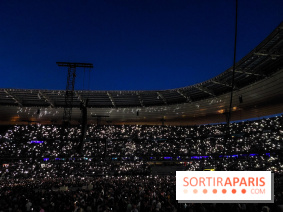They award points and penalties, and can sometimes be decisive on the outcome of a competition: referees are also at the heart of these Paris 2024 Olympic and Paralympic Games, and they often expose themselves to a great deal of criticism. Several hundred referees from over 50 different countries will officiate during these Games.
But who are they, and how were they chosen? It's not the International Olympic Committee that selects them, but the international federations of each sport that appoint a certain number of officials, including referees, video referees, assistants and reserves.
FIFA (the soccer federation) selected 89 referees of 45 different nationalities. The judo federation has selected 16 referees, two of them French, the others coming from Mongolia, Georgia, Finland, Australia, Mexico, Dominican Republic, Gabon... In archery, there are 14 officials and four substitutes; in handball, there are 16 pairs of judges/referees...
Please note: referees should not be confused with judges. Both are present at the Paris Olympics, but they don't work in the same way.
Judges examine and mark athletes' performances in sports such as gymnastics, breakdance, skateboarding, synchronized swimming, surfing, dressage... It's often the more artistic disciplines that are assessed by the judges. By giving scores to each competitor, the judges determine the winners of the event.
As for the referees, they make sure that the rules are respected, punishing bad behavior by the athletes, keeping score, monitoring game times...
These referees are trained and certified by their federations. They have been chosen because they have experience intop-level refereeing and their expertise is internationally recognized. Each federation must have selected the world's best referees in each discipline. In France, top-level referees and judges are registered on the official list validated by the Minister of Sports.















